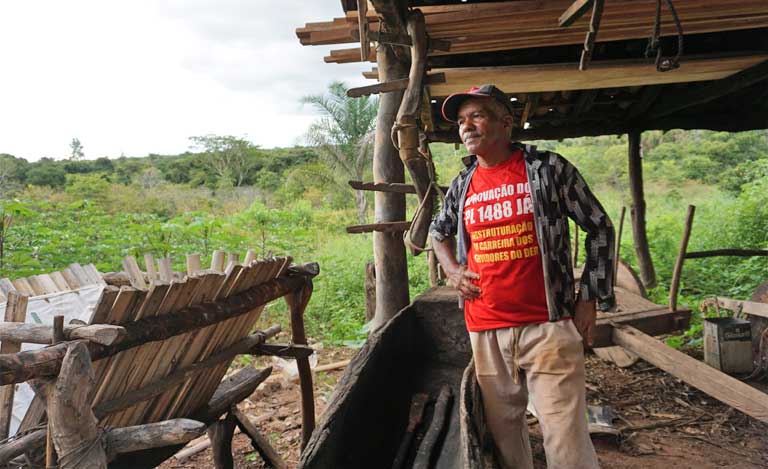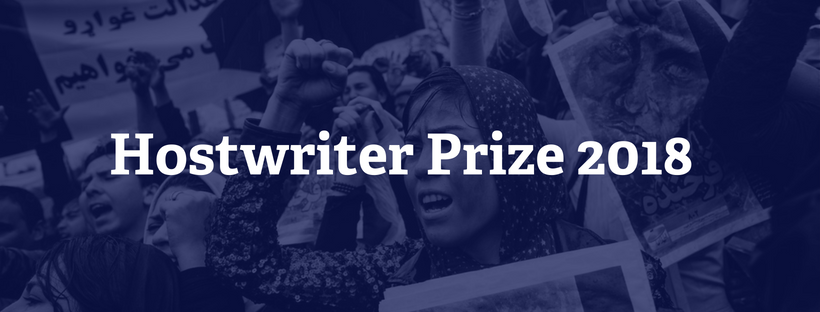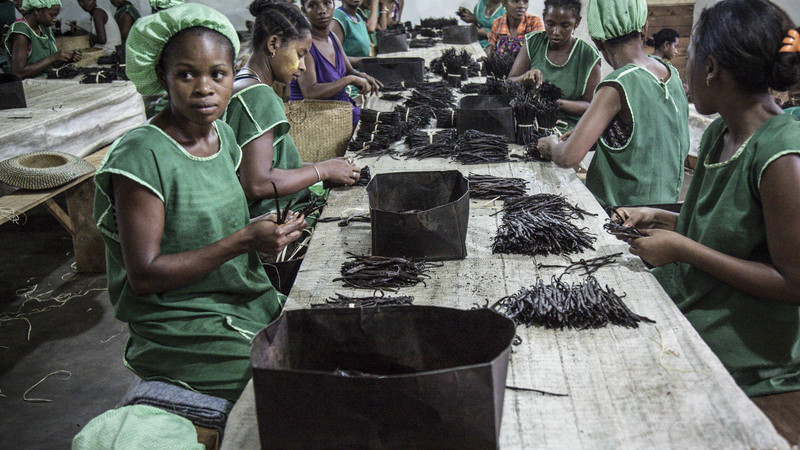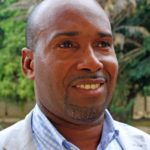The Hostwriter team is thrilled about the many great applications we received for this year’s HostwriterPrize. Through the shortlist process, we selected the best ideas based on the cross-border approach to the topic, the originality and structure of the pitch and the current relevance of the story. Below are the shortlisted Story Prize applicants, with a description of and link to their story. For our shortlisted Pitch Prize applicants, we list only their names and pitch title, in order to protect the research idea.
Hostwriter Story Prize Shortlist
Fish for cash: How the EU robs Africa of its seafood
By Kolawole Talabi, Sierra Leone and Arthur Debruyne, Mexico
Over the course of eight months, ocean conservationists working to raise public awareness on the dangers of overfishing, caught at least two European vessels, one from Spain and the other from Italy, with shark fins between 4 and 3600 kilos on board. That’s a clear violation of European regulations protecting sharks. Months after the incidents, evidence suggests that Brussels is willing to look the other way in a bid to protect its interests abroad.
Throughout the investigation, Hostwriter members Kolawole and Arthur also worked with an Italian journalist to follow developments in Italy.
Land-grabbing in Brazil

Juscelino Santos witnessed dramatic changes in the water supply in Correntina, which locals say is connected with the arrival of large-scale agribusiness. Credit: Alicia Prager
By Alicia Prager, Austria and Flávia Milhorance, Brazil
Flávia Milhorance and Alicia Prager travelled through the state of Bahia, Brazil and collaborated on a series of articles covering the impact of the rapidly expanding agribusiness industry on the Cerrado – a vast savannah in Brazil.
They used Hostwriter in the planning stage of their project to find potential valuable contacts, who are also part of Hostwriter, to get a feeling for the reporting environment.
Nepali migrant workers in Malaysia
By Ramu Sapkota, Nepal and Alyaa Alhadjri, Kuala Lumpur
How was Rs 5 billion (more than $71 million) collected from Malaysia-bound Nepali workers in the involvement of government agencies? Ramu and Alyaa worked together on this story revealing the “strange” collaboration of the government agencies of Nepal and Malaysia to fleece poor Nepalis. This week Malaysia suspended the agreement with Bestinet Sdn Bhd, that handles foreign workers’ visa applications and medical screenings after claims of exploitation.
Ramu met Alyaa through Hostwriter: “Hostwriter provided me a way to reach out to a specific journalist who is specialized in a related field.”
Vanilla fever: Fear sours the sweet scent of Madagascar’s success
By Ingrid Gercama, The Netherlands and Nathalie Bertrams, Belgium
Vanilla, the world’s most popular flavour, has become more expensive than silver, making it big business in Northern Madagascar. The vanilla trade however flourishes at the cost of the island’s last remaining rainforests and has been described as ‘worse than cocaine’. Ingrid and Nathalie’s article explores how the ‘vanilla fever’ fuels a spiral of crime, money laundering, speculation and corruption.
They used Hostwriter to connect with fellow journalists for advice about the situation in Madagascar. Through their recommendations Ingrid and Nathalie met local colleagues who alerted them to the deeper, hidden layers of the vanilla story – the environmental crime that feeds the vanilla price speculation.
A woman’s game: The first naturalised Dane female soccer player with Afghani roots
By Irene Caselli, Argentina, Mariangela Maturi, UK and Emil Staulund Larsen, Denmark
“It’s a boys’ game” is a refrain that is often repeated to young sportswomen. But what happens when a girl feels passionate about soccer? Nadia Nadim is a strong role model for young girls in Denmark: she started playing soccer in a refugee camp after a long journey she took with her mother and her four sisters from Afghanistan. She is now the first naturalised Dane to represent the Danish national soccer team and plays for Manchester City in England.
Irene and Angela managed to get in touch with Emil through Hostwriter. He helped them as a translator during the project.
Hostwriter Pitch Prize Shortlist
Feminism meets Islam in Bosnia and Indonesia
By Priyanka Borpujari, India and Lidija Pisker, Bosnia
Priyanka and Lidija met met each other on Hostwriter, owing to their common interests through their journalism career. Priyanka is planning to travel to Bosnia and Herzegovina for her reporting along with Lidija, while Lidija would travel to Indonesia and would have a chance to connect with Priyanka’s contacts there.
Ukraine: Illegal timber export to the EU
By Taras Zozulinskyy, Ukraine and Márton Sarkadi-Nagy, Hungary
Taras found investigative journalist Márton through Hostwriter. He’s planning to use the network to find journalists to help in their investigation.
The Children Left Behind: Separation of families in Latin America
By Tania Opazo, Chile and Marielba Nuñez, Venezuela
According to Tania, “Hostwriter could be an advantageous platform to contact journalists in all the places and build a network. We don’t have yet a final team for our project, and we were hoping Hostwriter could help us with this.”
Female Genital Mutilation in Senegal, Kenya and Nigeria
By Patrick Egwu, Nigeria, Annie Njanja, Kenya and Mamadou Lamine, Senegal
Patrick highlights that Hostwriter will provide them with the platform to communicate while carrying out the story.
Our jury members are voting over the next few days to decide the stories that will be awarded with the 2018 Hostwriter Story Prize and Hostwriter Pitch Prize. Grants of €2000 and €1000 will be made to the 1st and 2nd place winners of the Story Prize. Two Pitch Prize winners will each receive a grant of €1000 to help with the completion of their collaborative projects.
The prize money is donated by the Otto Sprenger Stiftung. The foundation honors the work of German journalist Otto Sprenger, a former unionist and employee of the German public service broadcaster NDR, who was committed to supporting young journalists, collaboration and social engagement.
Hostwriter is an open network that helps journalists to easily collaborate across borders. We connect more than 3,700 journalists from 137 countries to seek and offer help, whether in the form of local advice, story collaboration or accommodation. We see cross-border journalism as a tool to overcome national bias and prejudice, ultimately contributing towards better informed, more accountable and democratic societies.











